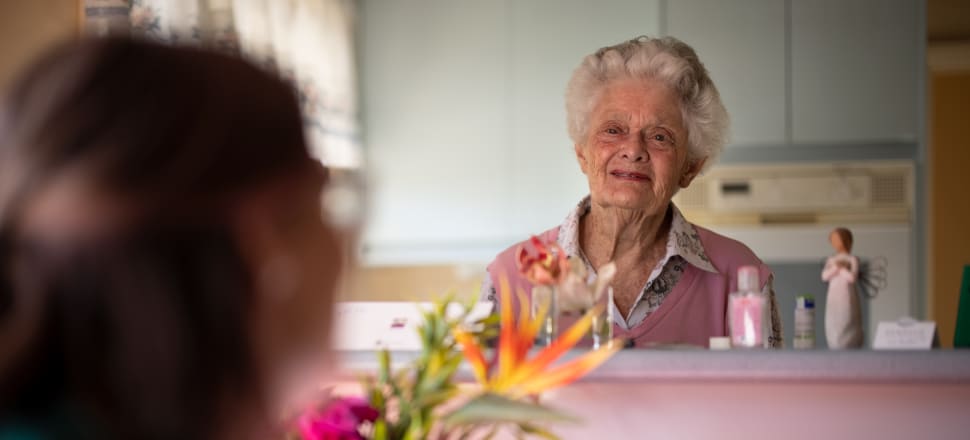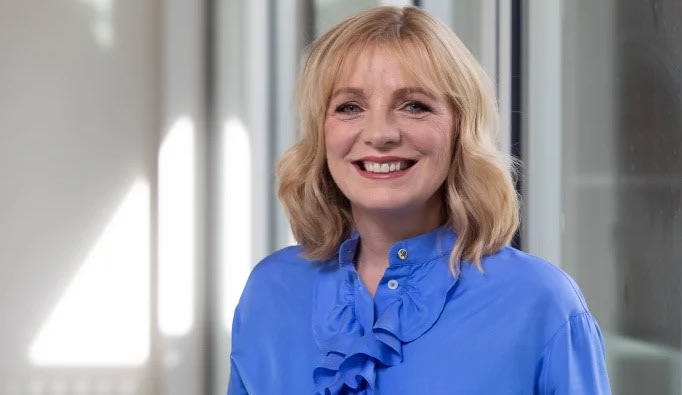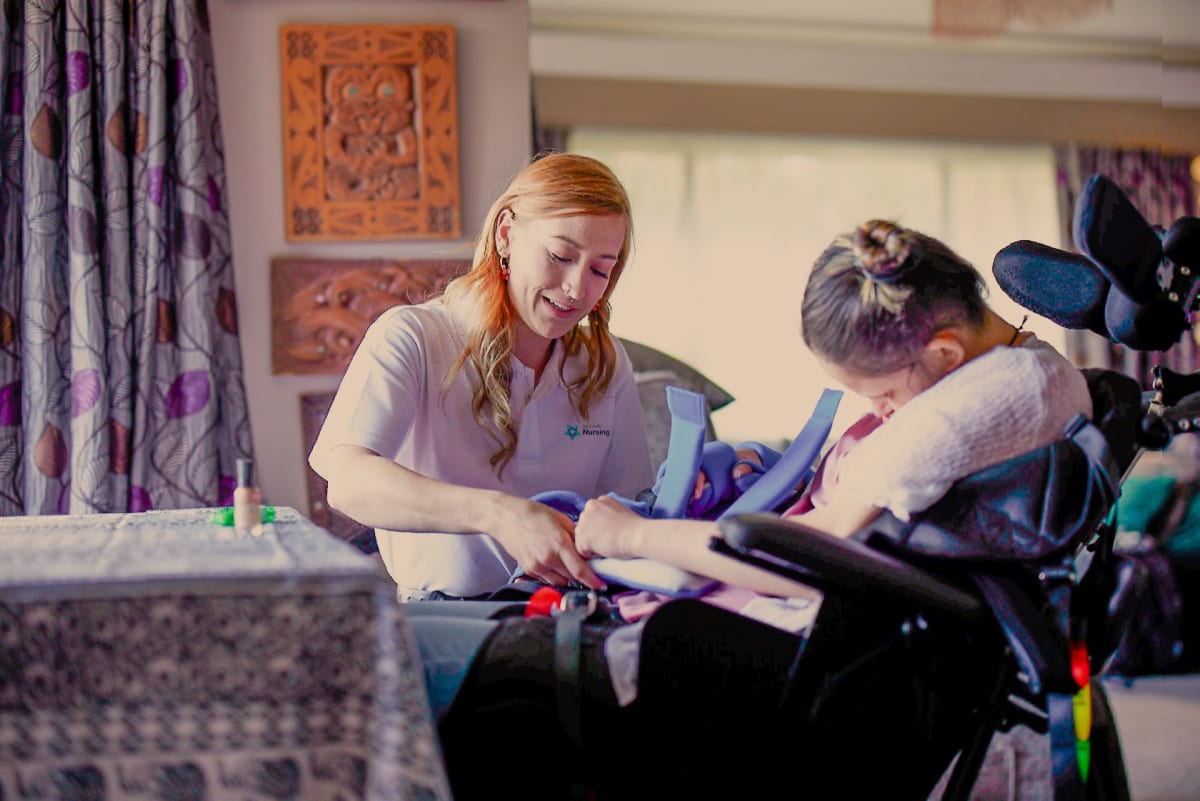
WATCH THE VIDEOS: The health reforms are a massive opportunity to improve home health services, pay support staff more, and slash admin – without Government spending more, says NZ Health Group boss Josephine Gagan. But it’s going to need a huge shift in thinking within the health bureaucracy
In an ideal world, community care workers – the people that support elderly, sick or disabled people in their homes – would get paid far more than they do, says Josephine Gagan. She’d recommend between $40 and $50 an hour, as opposed to the $28 they get paid under present Government pay scales.
In the real world, good luck with anything more than the sort of minimal increase which saw rates rise from $27 to $28.25 on July 1.
But Gagan, chief executive of NZ Health Group, New Zealand’s biggest provider of home and community care services, has a plan. All she needs now is for the Government to listen.
Imagine if, instead of the majority of homecare support workers performing relatively basic tasks – showering, dressing, meal preparation, cleaning, helping with medications – they were upskilled to have more specialist understanding around people with, say, diabetes or autism, Gagan told Newsroom Pro Talks subscribers in a full-length webinar interview.
The benefits for disabled, sick or elderly could be enormous – a carer who might visit every day or even more often, able to provide some insight into long term medical problems.

“If they were properly trained, they would be able to see straight away if there was something different with an individual and they might have the ability to escalate that to a clinician, a nurse or a GP.
“Imagine the impact on people's lives if they could get access to, for example, a referral to a podiatrist if they had diabetes and had something wrong with their feet. The preventative ability of that is enormous.”
And the support workers – they benefit because they get paid extra for their additional time and expertise.
“So at the moment, someone might go in for 15 minutes to do a medication or half an hour to do a shower. Our proposal would be about recognising that they would maybe need to be there for 15 minutes or half an hour or more. But we are saying ‘these are all the things that they could do’.
“The incremental value you get out of training someone, recognising that they will be able to do those other three or four things of real value, would be enormous.”
In theory, this focus on providing more care in the community is exactly what the Government is looking to achieve with its latest health reforms.
In April 2021, announcing the merger of the 20 DHBs into a single health Te Whatu Ora (Health NZ), Health Minister Andrew Little stressed the key role of preventative care.
“The reforms herald a change in focus for the health system – we will treat people before they get sick so they don’t need to go to hospital, thereby taking the pressure off hospitals,” Little said.
“The reforms will also ensure the system is able to cope with the effects of an ageing population.”
Treating older people at home
Statistics NZ figures suggest the age of the oldest 10 percent of the population will rise significantly over the next 50 years.
As of now, around 10 percent of the population is over 71.6 years, the figures show, but by 2033 the oldest 10 percent are likely to be over 75. And by 2073, that number is expected to be closer to 80.
The problem with an ageing population, Gagan says, is not that they are old, but they are more likely to be living with one or more chronic health problems.
“It’s just not affordable to keep managing this in an expensive hospital setting; healthcare has got to head home because we won’t have enough hospital beds to accommodate everybody.
“The Government and Te Whatu Ora should act now to get those specialist people in the community so people can access the services much more easily and don’t have to wait for those services.”
Radically beefing up the home and community care sector sounds expensive. But that’s where another part of Gagan’s plan comes in – significant restructuring of the way support is delivered to get rid of what she sees as a massive amount of duplication and inefficiency.
And the time to do that is now, she says, while the DHBs are being consolidated, and before a new structure gets set in stone.
She reckons this restructuring could save millions of dollars, which could then be spent on improving services and increasing income for staff.
READ MORE:
► Pro Talks: ‘Building the health reform plane while flying it’
“Take services like showering and dressing. At the moment we have over 300 different contracts with the various DHBs. But fundamentally they are the same services that we are delivering. For all of these contracts there are procurement processes, there’s reporting, there’s administration, there’s monitoring.
“There’s a whole workforce of people who are managing all these contracts in terms of ‘are you meeting the service requirements’, when they could actually be consolidated into one, either national or regional contract.
“And that would make it much simpler to deliver for us as a provider, but it would also have the opportunity of reducing procurement and administration costs within the health system that would then be redirected for frontline care.”

Disrupting the status quo often comes naturally to the private sector, Gagan says, but she feels this Government is wary of private companies, suspicious they might just be wanting to make money from the taxpayer.
That’s ironic, she says.
“I think you’d be shocked at the amount of profit we make from homecare services – around 1 percent. So the funding attached to delivering the services ultimately provides a very, very knife-edge margin for the organisation.
“We are very reliant on Government funding to maintain our sustainability, and really 1 percent is not sustainable.”
Gagan says NZ Health Group has presented its ideas on reform to “tier two” health officials, but has not received an answer to repeated requests to meet with Margie Apa and Riana Manuel, respectively the chief executives of Te Whatu Ora and Te Aka Whai Ora.
“We appreciate they’ve got a very busy schedule, but as an organisation which delivers 10 million hours of home support care a year we feel we’ve got a real voice and some fantastic ideas of how we can support them with a strategy to start shifting more healthcare services nearer to where people live.”

New Zealand Health Group has been working with ACC for a decade, Gagan says.
“It’s been a successful partnership, culminating in an integrated home and community support contract, which means we don’t just deliver home support for ACC, but physiotherapy, occupational therapy, dieticians, any allied health [service] that person needs we are able to provide, so the person gets a much more joined up experience of support.”
Would a similar model be possible within the health system?
“Not impossible, but it would require quite a change in thinking from Te Whatu Ora... There are processes and historical practices and beliefs that I’m not sure have been examined in terms of how could we do this differently. Rather than just keep asking for more and more, what could we fundamentally challenge?
“How could we do it differently and actually achieve the same, if not a better outcome?”
WATCH PRO TALKS:
* BNZ appeals to businesses to ‘talk to us’ as their costs rise
* Green bank to invest in energy generation through ‘novel’ product
* Ambassador champions China’s increased security presence in the Pacific
* Z Energy's Mike Bennetts and the end of petrol
* Naomi James offers Marsden Point oil tanks for national fuel reserve
* Economist Jarrod Kerr on why it’s hard to build out of the housing crisis
* The climate clock is ticking, say world's top negotiators
* Rod Oram says NZ farmers shouldn’t feel picked on at COP26
* Ports chair Jan Dawson warns of supply chain delays at Christmas
* Covid aide Rob Fyfe: ‘Now’s not the time to pat ourselves on the back’
* NZ Rugby boss Mark Robinson on Ineos, Silver Lake and cost of rugby

Newsroom Pro Talks is made with the support of Spark.
Pro Talks is a live webinar series that looks at the crunchy part of big picture issues with the people whose decisions have a wider impact than just their own companies or enterprises. Hosted via Zoom, subscribers can watch our journalists interview industry leaders live and add their questions to the discussion.







